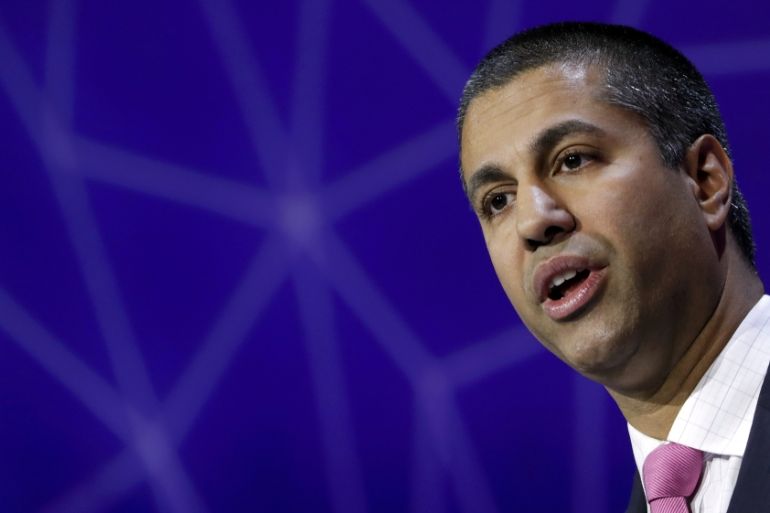Obama-era online privacy rule overturned by Congress
The ruling means that internet providers will no longer need permission to market customers’ web-browsing history.

The United States Congress has sent President Donald Trump legislation that would kill an online privacy regulation, a move that could allow internet providers to sell the browsing habits of their customers.
The Federal Communications Commission rule, issued during the final months of the Obama administration, was designed to give consumers greater control over how internet service providers share information. But broadband providers said the rule favoured certain companies.
Keep reading
list of 4 itemsHunter Biden sues Trump ally Rudy Giuliani over data breach allegations
Evolving threats: The state of personal data protection in Brazil
X Blue users will need to send selfie, data to Israeli software company
The House voted 215-205 to reject the rule, largely along party lines.
Democrats said Republicans put profits over the privacy concerns of Americans.
READ MORE: Trump moves to roll back Obama-era climate policies
“Overwhelmingly, the American people do not agree with Republicans that this information should be sold, and it certainly should not be sold without your permission,” Minority Leader Nancy Pelosi said. “Our broadband providers know deeply personal information about us and our families.”
Google and Facebook are regulated by another agency and face different standards when it comes to customer data. They don’t have to ask users’ permission before tracking what sites they visit.
Republicans and industry groups have criticised that discrepancy, calling it unfair and confusing for consumers.
![House Minority Leader Nancy Pelosi said Republicans are putting profits over the privacy concerns of Americans [EPA]](/wp-content/uploads/2017/03/55724f5d5ba04025890a0b7a228ea1b9_18.jpeg)
Proponents of the privacy measure, though, argued that the company that sells you your internet connection can see even more about consumers, such as every website they visit and with whom they exchange emails. That information would be particularly useful for advertisers and marketers.
Undoing the FCC regulation leaves people’s online information in a murky area. Experts say federal law still requires broadband providers to protect customer information – but it doesn’t spell out how or what companies must do. That’s what the FCC rule aimed to do.
The Trump-appointed chairman of the FCC, Ajit Pai, a critic of the broadband privacy rules said they could discourage new investments. He and other Republicans want a different federal agency, the Federal Trade Commission, to police privacy for both broadband companies such as AT&T and internet companies, such as Google.
READ MORE: Snooping, data leaks and the threat to online privacy
Republican Kevin McCarthy said the FTC has acted as the online privacy regulator in the US since the dawn of the internet. He called the rule an effort to strip the agency of that role.
“The internet has become the amazing tool that it is because it is largely left untouched by regulation and that shouldn’t stop now,” McCarthy said.
Broadband providers do not currently fall under FTC jurisdiction, and advocates say it has historically been a weaker agency than the FCC.
The American Civil Liberties Union urged Trump to veto the resolution.
“President Trump now has the opportunity to veto this resolution and show he is not just a president for CEOs, but for all Americans, said the ACLU’s Neema Singh Guliani.
Republicans repeatedly discounted the privacy benefits generated by the rule. Over the last two months, they have voted to repeal more than a dozen Obama-era regulations in the name of curbing government overreach.
“Lawmakers who voted in favor of this bill just sold out the American people to special interests,” said Democrat Jared Polis.